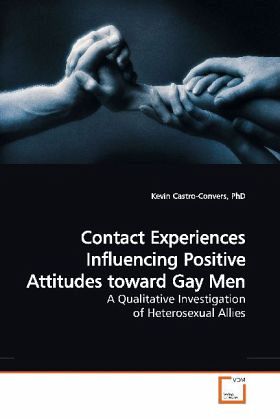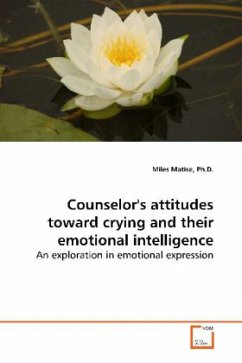
Contact Experiences Influencing Positive Attitudes toward Gay Men
A Qualitative Investigation of Heterosexual Allies
Versandkostenfrei!
Versandfertig in 6-10 Tagen
39,99 €
inkl. MwSt.

PAYBACK Punkte
20 °P sammeln!
The purpose of the investigation was to understand how heterosexual women and men described the nature and quality of interpersonal contact experiences with gay men that contributed to their forming positive attitudes toward gay men. The interviews of 15 heterosexuals were analyzed using the methodologies outlined by Hill, Thompson and Williams (1997); i.e., consensual qualitative research (CQR). The results from qualitative inquiry suggested that the nature of interpersonal contact was in the form of direct contact experiences that occurred while a heterosexual individual and her/his contact ...
The purpose of the investigation was to understand how heterosexual women and men described the nature and quality of interpersonal contact experiences with gay men that contributed to their forming positive attitudes toward gay men. The interviews of 15 heterosexuals were analyzed using the methodologies outlined by Hill, Thompson and Williams (1997); i.e., consensual qualitative research (CQR). The results from qualitative inquiry suggested that the nature of interpersonal contact was in the form of direct contact experiences that occurred while a heterosexual individual and her/his contact person were in pursuit of similar activities. The quality of these experiences was in the form of friendships or a strong connection that developed between the heterosexual person and her/his contact person. Participants identified going through at least four stages of developing positive attitudes and identified seven factors that influenced these attitudes. It is argued that one role contact plays in a heterosexual person developing positive attitudes is by initiating a cognitive process that leads to cognitive changes, which ultimately affect changes in attitudes.












